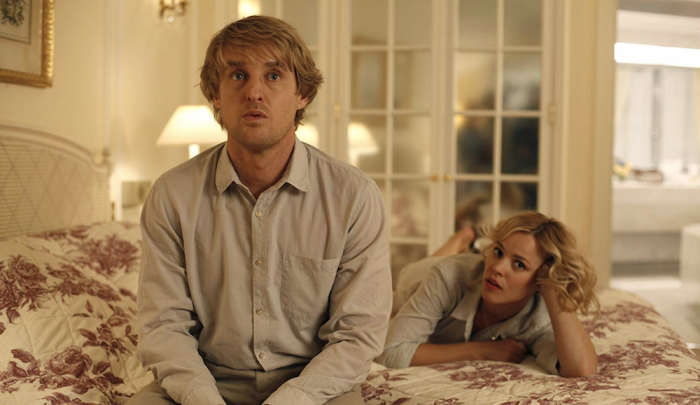I met my husband when we were 16 years old.
Like so many teen relationships, we fell in love quickly, recklessly.
He said he loved me first, though it was more of a confession than a declaration, as though he were mystified at how something like that could have happened to him with someone like me.
I’ve often wondered if I went back and showed my 16-year-old self what the next 24 years held in store, if she would have stayed.
When you’re 16, all you know of love is stories and fairy tales, hazy dreams of idealism, and that unmatched certainty that your love, among all others, is surely something special. Would my young heart have withstood the ripping away of my rose-colored glasses?
Looking back now, knowing the challenges we have faced and the choices we have made, I am fiercely proud of our relationship. If I could, I would tell that girl, that young and idealistic me, to stay.
I would tell her that every shattered dream of how love should be was merely a shattered seed, needing to be broken apart so that what love really is could grow instead.
I would tell her what I’ve learned about love and disabuse her of some of the misconceptions she held that would prove to be painful lessons along the way.
People don’t change? Bullsh*t.
Social media is awash in motivational quotes exhorting us to listen when people show us who they are the first time and to stop expecting—or even hoping for—people to change. And yet we are also told that our personal growth game is strong, that our pasts don’t define us, that every day is a new day to become whom we’ve always wanted to be.
Think about your teenage self. Chances are, you’ll smile at some recollections and cringe at many more, but I also think that you’d say that the present version of yourself is wiser. Maybe calmer. Hopefully more responsible. The idea that growth and change is a magic reserved only for ourselves is pure narcissism.
In truth, everyone changes. Heraclitus famously observed that “Change is the only constant in life.”
Why do we tell ourselves this bullsh*t lie? Maybe it’s because believing this absolves us of the responsibility and challenge of staying present and holding space for someone as they go about the messy process of growth. Or maybe it’s simply that telling yourself that someone is incapable of change is easier than facing the fact that sometimes, people simply choose not to change, no matter what you say.
People change when they choose to change, pure and simple. If they aren’t changing, it’s not because they can’t, it’s because they have chosen not to.
Love is unconditional? Bullsh*t.
The idea of unconditional love has been immortalized in song, verse, prose, and teachings for thousands of years. Unconditional love is held up as ideal love, and what new couple doesn’t believe that their love is ideal?
But put another way, unconditional love is love without boundaries. It is love that decides preemptively to ignore reality.
Imagine deciding to go camping one weekend. You buy all the supplies and pack up, despite weather forecasts calling for inclement weather. You drive to the campsite, despite tornadoes in the area. You set up your tent, despite a wildfire raging through the park. You camp, because, by God, you decided ahead of time that you were going to camp, and you burn up in the end.
Love without boundaries is self-destruction.
There are a million boundaries love could maintain, and they are different for everyone. Maybe you draw the line at abuse. Maybe you draw the line at adultery. Maybe you draw the line at decorating for Christmas in October. Where your boundary exists isn’t as important as having healthy boundaries and being sure to communicate those to your partner.
The existence of boundaries doesn’t mean your love isn’t true. Quite the contrary: knowing and respecting another person’s boundaries is one of the highest expressions of love.
If it’s meant to be, it will flow? Bullsh*t.
“Don’t force it,” memes tell us. “Relationships. Friendships. Ponytails. If you have to force it, let that sh*t go.”
There’s a beauty to living life in flow, to being in tune to what feels natural and what feels like buttoning on last season’s skinny jeans after an evening at an all-you-can-eat buffet.
But the danger of expecting life to flow easily and rejecting that which doesn’t is that we become a population who has no experience with—nor stamina for—conflict resolution and compromise.
People shouldn’t be taught to quit when things get hard any more than they should be taught that our lives are guided by some mythical “meant to be” rather than simply our choices and the effects of those choices.
Instead of walking away when things aren’t flowing, maybe we actually buckle in and learn how to examine our lives, communicate our needs clearly, actively listen to our partner, and—gasp!—change.
Where my husband and I stand today is the sum total of the daily choices we’ve made along the way, and where we want to be in the future will be the result of the same. Sometimes it flows, and sometimes it’s hard, dirty, exhausting, determined work. And so far, we still choose the work, choose us, every day.
I can’t regret the road we’ve walked, as it’s brought us to a pretty spectacular place today. But I can look back and think that maybe more realistic expectations from the outset would have resulted in fewer tears shed along the way.
So to 16-year-old me, and to anyone else still operating under the weight of these bullsh*t lies, let me be the first to say, let that sh*t go.
The love you have ahead of you might not look like the fairy tale you’d envisioned for yourself, but that’s okay. It will be real, and all the better, for it.
 Share on bsky
Share on bsky





Read 34 comments and reply